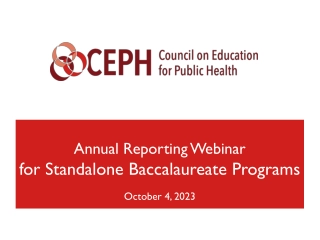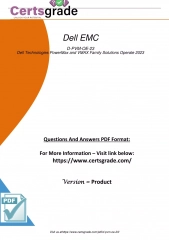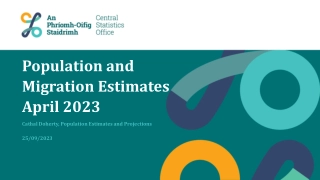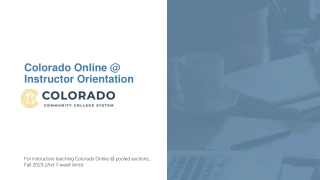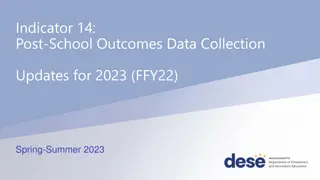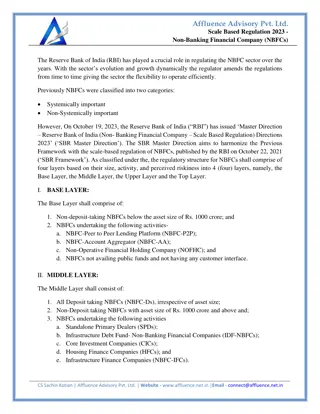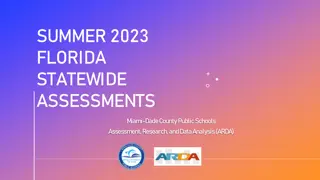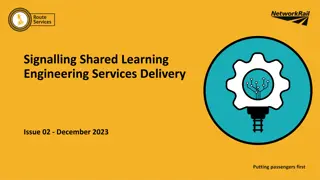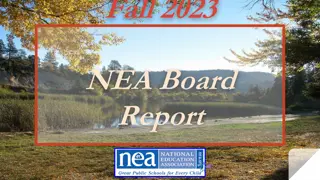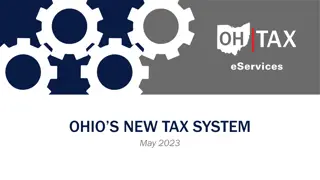
Understanding Financial Aid for College: A Comprehensive Guide
Learn about financial aid, unexpected college costs, eligibility for federal aid, FAFSA application process, and steps to apply through a detailed guide for high school seniors and parents.
Download Presentation

Please find below an Image/Link to download the presentation.
The content on the website is provided AS IS for your information and personal use only. It may not be sold, licensed, or shared on other websites without obtaining consent from the author. If you encounter any issues during the download, it is possible that the publisher has removed the file from their server.
You are allowed to download the files provided on this website for personal or commercial use, subject to the condition that they are used lawfully. All files are the property of their respective owners.
The content on the website is provided AS IS for your information and personal use only. It may not be sold, licensed, or shared on other websites without obtaining consent from the author.
E N D
Presentation Transcript
Financial Aid Night Welcome High School Seniors and Parents
What is financial aid? Financial Aid can come from various sources to provide funding that is intended to help students pay educational expenses at a college, university or private school. Expenses include: Tuition and Fees Room and Board Books and Supplies Transportation Miscellaneous Expenses
What costs might I not anticipate? The cost of college can include a variety of items that you might not initially expect: Gas to drive back and forth from campus Living expenses (apartment/dorm, utilities, food, etc.) Computer with updated software for homework or online classes Equipment needed for your field of study (stethoscope, camera, uniforms, etc.)
Who is eligible for federal financial aid? U.S. citizen/national or eligible noncitizen High school diploma or GED Eligible degree or certificate program at a financial aid eligible school Student must have a valid social security number Satisfactory academic progress StudentAid.gov/eligibility
How Do I Apply? Fill out the FAFSA www.studentaid.gov FREE Application Federal Student Aid The newest FAFSA becomes available October 1st each year This application must be filled out EVERY year! NEW App Students and Parents can download the myStudentAid app to complete the FAFSA on their mobile device
Step 1: Apply for a FSA ID Create a username and password Used to access your Federal Student Aid records online & U.S. Department of Education websites The FSA ID confirms your identity when access your financial aid information and electronically sign Federal Student Aid documents Should never be shared with anyone For Dependent students one parent must also apply for a FSA ID www.studentaid.gov Write it down and keep it in a secure location!
Step 2: Fill out the FAFSA online or on your mobile device What you will need FSA ID (student/parent) Drivers License Social Security Number (make sure it is correct!) W-2 Forms and other records of money earned Federal Taxes (1040 and all Schedules) Current bank statements Current business and investment information Your alien registration or permanent resident card (if you are not a U.S. citizen)
Step 3: Determining dependency status Independent or Dependent? The FAFSA will ask you a series of questions to determine your dependency status. Questions will include: Will you turn 24 during the upcoming academic year? As of today, are you Married? Are you currently serving on active duty in the U.S. Armed Forces for purposes other than training? Are you a veteran of the U.S. Armed Forces? Do you have children or dependents who will receive more than half of their support from you, now and through the upcoming academic year? Are you in foster care, a ward of the court, have legal guardianship or emancipated from your parents, homeless or at risk of being homeless? If you answer NO to all of these questions, you are considered Dependent and will need to provide parental information on your FAFSA
Step 4: Tips for completing the FAFSA Use the IRS Data Retrieval Tool to automatically fill in tax information for you and your parents In order to verify your identity, you will be asked a few questions regarding how you filed your taxes (name, address, type of tax return completed, etc.) Double check your (and your parents) Social Security number and date of birth to make sure they are entered correctly Pay attention to the FAFSA section headings there are separate Parent and Student Income information tabs. Don t enter parents tax information on the student tab
Special Considerations If you answered NO to all of the Dependency Questions but you have a unique circumstance that prevents you from being able to provide your parents information on your FAFSA - contact your College s Financial Aid Office for information on filing a request for a Dependency Override If you or your family s financial situation has changed significantly from what is reflected on your FAFSA (due to job loss, reduction in hours, divorce, death of a parent, etc.), you may be eligible to have your financial aid adjusted contact your College s Financial Aid Office for information on filing a request for a Special Conditions
Step 5: Your FAFSA is submitted - Now What? Continue answering the rest of the questions on the FAFSA until you get to the Sign and Submit page. Make sure you (and your parent) sign the FAFSA with the FSA ID that you created in Step 1. Make sure to click SUBMIT (don t just save your FAFSA or it will not be processed) Check your email to review your FAFSA Confirmation information Within 3-5 business days, your FAFSA will be sent to all of the schools that you listed on your FAFSA you are able to send your FAFSA to up to 10 colleges The school(s) will contact you, either electronically or by mail Make sure to submit ALL required documents in a timely manner in order to have your financial aid packaged Pay attention to due dates Your Financial Aid Award Offer will indicate the types of aid you are eligible to receive
What is the Expected Family Contribution (EFC)? The information reported on your FAFSA will generate an EFC this number can be found on your FAFSA confirmation email and will be used to determine the students eligibility for grants, loans, and some scholarships. The EFC is: The amount the family can reasonably be expected to contribute to a the students college education Will stay the same regardless of the college you attend Two components factor into the EFC calculation: Parent contribution Student contribution Will be used when your college calculates your financial aid award offer
How is Financial Need determined? Cost of Attendance (determined by each school) - Expected Family Contribution (EFC) _______________________________ = Financial Need (need based aid)
Categories of Financial Aid There are 2 categories of financial aid funding: Need-based aid Federal Pell Grant Federal Supplemental Educational Opportunity Grant Federal Work Study Federal Direct Subsidized Loan Scholarships (some may be need based) Non-need-based aid Federal Direct Unsubsidized Loan Federal Direct PLUS Loan Scholarships (some may be merit based)
Grants Grants are funds that do not typically have to be paid back and are usually awarded on the basis of financial need. Federal Grants: Federal Pell Grant Federal Supplemental Educational Opportunity Grant Federal TEACH Grant Iraq and Afghanistan Service Grant Must complete FAFSA to determine eligibility
State Aid - Grants & Scholarships The State of Ohio invests significant resources in a wide array of financial aid programs so that immediate cost-savings are available to students at Ohio public institutions. Many types of grants and scholarships are available and awarded based on a areas of study, academic merit, financial need, military status, and more. Learn more by exploring the state programs listed below: Choose Ohio First Opportunities For Veterans Nurse Education Assistance Loan Program Ohio College Opportunity Grant Ohio War Orphans & Severely Disabled Veterans' Children Scholarship Ohio Safety Officers College Memorial Fund Forever Buckeyes Visit https://www.ohiohighered.org/sgs for more information
Scholarships Scholarships are funds that do not have to be paid back and are usually awarded on the basis of merit, skill, or unique characteristic. There are various sources of scholarships, below are a few areas to start your scholarship search: Check with your college s Financial Aid Office for Foundation & Institutional scholarships Ohio Department of Education Community, Civic or Business organizations (Moose, Legion, Elks, churches, your parents employer, etc.) Your high school guidance counselor may have scholarship opportunities available to apply for Trusted internet site websites: www.studentaid.gov/scholarships www.scholarships.com www.finaid.org www.fastweb.com
NSCC Presidential/Honors Scholarships Presidential Scholarship Full Tuition Scholarship; applied after other tuition scholarships Honors Scholarship Half Tuition Scholarship; applied after other tuition scholarships Certain HS GPA / ACT score requirements Certain HS GPA / ACT score requirements Maintain 3.5 GPA Maintain 3.25 GPA 20 hours community service each year 10 hours community service each year Renewable for 3 years Renewable for 3 years Contact our NSCC Admissions Office to apply: 419-267-5511
Student Loans Money that a student and/or a parent borrows to help pay college expenses Subsidized Stafford Loan Unsubsidized Stafford Loan Parent PLUS Student Loan Funds will need to be repaid, with interest that accrues monthly Only borrow what is really needed Loans are an investment into your future
Federal Work Study The Federal Work Study (FWS) program provides part-time jobs for students with financial need, and allows students to earn money to help pay educational expenses Check with your college s financial aid office for information on how to apply for FWS Some college s have FWS positions that are available both on and off campus You will get paid for actual hours that are worked per your colleges pay period https://studentaid.gov/understand-aid/types/work-study
Advice for a Successful College Experience Apply for financial aid early financial aid is a process and cannot be done all in one day. Don t forget, applying for financial aid has to be done each year. Pay attention to due dates and deadlines Check your college email and school portal often Attend class when scheduled, ask your instructor and/or academic advisor for help, and take advantage of study groups and tutoring. Your success in the classroom is your way of maintaining your financial aid eligibility each year. Don t be afraid to ask for help every employee at your college wants to see you succeed!
Questions?? NSCC Financial Aid Office 419-267-1333 finaid@northweststate.edu


